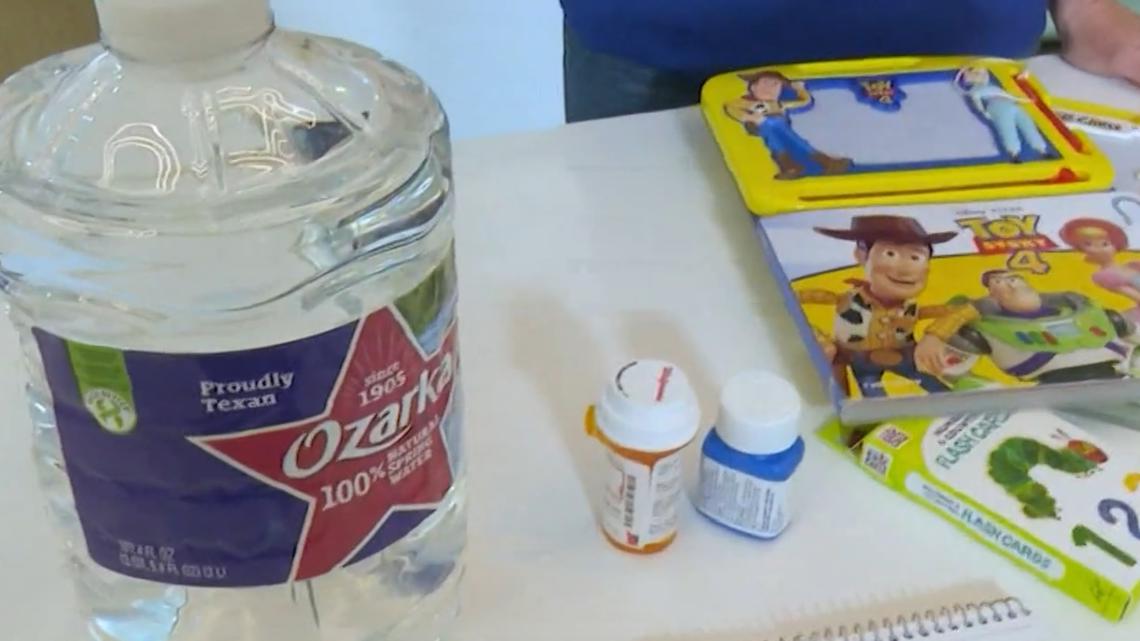
During hurricane season, it’s important to make sure you have everything you need in case a storm comes our way. Here’s a list for your hurricane kit.
HOUSTON — It’s hurricane season and you need to be prepared. Now is the time to make you have what you’ll need in case a storm comes our way.
If you wait too long, you’re likely to find long lines and empty shelves at grocery stores and anyplace that sells plywood, flashlights, generators or other storm prep items. You’ll want to make sure you’ve got plenty of gas in the tanks of all of your vehicles.
Here are some of the items you’ll want to have on hand if a storm comes our way.
Before the storm
What to have in your go bag
- CASH
- IMPORTANT DOCUMENTS (in a waterproof bag)
- EXTRA SET OF KEYS (house and car)
- PORTABLE CHARGERS FOR ALL MOBILE DEVICES
- BOTTLED WATER AND SNACKS (granola or energy bars)
- FIRST-AID SUPPLIES, FLASHLIGHT, AND WHISTLE
- BATTERY OPERATED OR HAND-CRANK RADIO (extra batteries)
- PRESCRIPTION LIST AND MEDICATIONS (14-day supply)
- PERSONAL SANITATION ITEMS (moist towelettes, soap, toothpaste and toothbrush, hand sanitizer, and face mask)
- INFANT FORMULA AND DIAPERS
- CHANGE OF CLOTHING (kept in a waterproof bag)
- CONTACT AND MEETING PLACE INFORMATION FOR YOUR
- FAMILY (include a map of the local area)
- SMALL TOYS AND BOOKS FOR CHILDREN
- RAIN PONCHOS
- ESCAPE TOOL FOR YOUR CAR
During the storm
Items for your shelter-in-place checklist
- ALL ABOVE ITEMS FOR YOUR GO BAG
- WATER (one gallon per person per day, for drinking and sanitation, up to a 7-day supply)
- NON-PERISHABLE FOOD (up to a 7-day supply per person)
- PAPER AND PLASTIC EATING UTENSILS
- MANUAL CAN OPENER & TOOLS
- FIRE EXTINGUISHER
- MATCHES (kept in a waterproof container)
- PLASTIC TARP AND DUCT TAPE FOR REPAIRS OR SHELTERS
- PERSONAL SANITATION ITEMS (garbage bags, soap, disinfectant, and paper towels)
- TOILETRIES
- RAIN GEAR (sturdy shoes or boots, long pants, and gloves)
- BLANKETS
- PET SUPPLIES (food, water, medications, pet carrier, leash, and collar with ID)
After the storm
Floodwaters
Floodwaters can contain diseases, debris, wildlife, or chemicals. If flooding has damaged your home or property, throw out contaminated items. This includes livestock feed and hay. If your home, vehicle, or personal property has been damaged or destroyed, contact your insurance agent. If it is safe to do so, take pictures or video of the damage. Also, listen to local officials for instructions. In large-scale disasters, additional assistance may be (but isn’t always) available.
Utilities
Utilities such as power lines or natural gas service may have been damaged during the disaster. If you see downed power lines or suspect a gas leak, leave the area. Once you are in a safe location, call 9-1-1 and your utility company to report the emergency.
Food safety
Disasters can cause power outages. Even if your power is back on when you return, food stored in your refrigerator or freezer may no longer be safe to eat. If your power does go out, be aware that a lack of refrigeration can cause food to spoil and become unsafe to eat. The FDA and USDA recommend that any refrigerated food that rose above 40° F for more than two hours be thrown out and that any frozen food that is now thawed be thrown out as well. Learn more at foodsafety.gov.
GENERATOR SAFETY
If you choose to use a generator during or after a disaster, follow these simple safety tips to protect yourself and your family from dangerous carbon monoxide gas and electrocution:
- Always use generators outside, away from doors, windows, awnings, and eaves. Generators should be 20 feet away from buildings.
- Do not use chains or locks to secure a generator because this can hamper firefighters in an emergency.
- Never connect a generator directly to your home’s electrical system. Instead, use properly-rated extension cords and connect appliances directly to the generator.
- Consult an electrician before performing advanced generator tasks, like using an automatic generator or transfer switch.
- Do not store gasoline inside your home or near water heaters.
- Always have a UL-approved carbon monoxide detector when using generators.
The American Red Cross also has a hurricane safety checklist you can download here to prepare your family from danger.
Here are some more tips for what to have in your checklist for you pets
Stay with KHOU 11 throughout hurricane season for the latest on any storms that form in the Atlantic basin. We’ll have updates online, on-air and on KHOU 11+.
